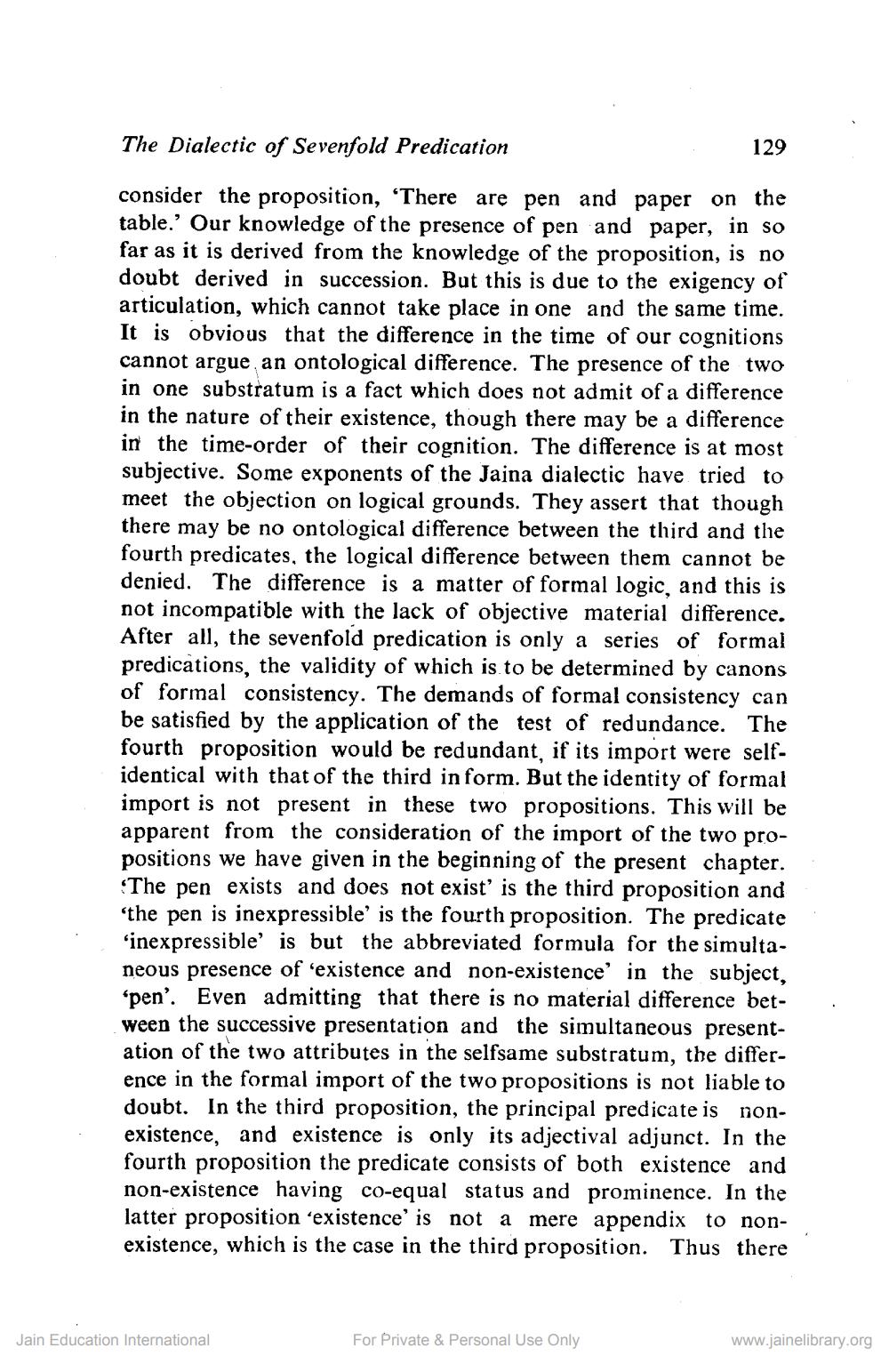________________
The Dialectic of Sevenfold Predication
consider the proposition, 'There are pen and paper on the table.' Our knowledge of the presence of pen and paper, in so far as it is derived from the knowledge of the proposition, is no doubt derived in succession. But this is due to the exigency of articulation, which cannot take place in one and the same time. It is obvious that the difference in the time of our cognitions cannot argue an ontological difference. The presence of the two in one substratum is a fact which does not admit of a difference in the nature of their existence, though there may be a difference in the time-order of their cognition. The difference is at most subjective. Some exponents of the Jaina dialectic have tried to meet the objection on logical grounds. They assert that though there may be no ontological difference between the third and the fourth predicates, the logical difference between them cannot be denied. The difference is a matter of formal logic, and this is not incompatible with the lack of objective material difference. After all, the sevenfold predication is only a series of formal predications, the validity of which is to be determined by canons of formal consistency. The demands of formal consistency can be satisfied by the application of the test of redundance. The fourth proposition would be redundant, if its import were selfidentical with that of the third in form. But the identity of formal import is not present in these two propositions. This will be apparent from the consideration of the import of the two propositions we have given in the beginning of the present chapter. The pen exists and does not exist' is the third proposition and 'the pen is inexpressible' is the fourth proposition. The predicate 'inexpressible' is but the abbreviated formula for the simultaneous presence of 'existence and non-existence' in the subject, 'pen'. Even admitting that there is no material difference between the successive presentation and the simultaneous presentation of the two attributes in the selfsame substratum, the difference in the formal import of the two propositions is not liable to doubt. In the third proposition, the principal predicate is nonexistence, and existence is only its adjectival adjunct. In the fourth proposition the predicate consists of both existence and non-existence having co-equal status and prominence. In the latter proposition 'existence' is not a mere appendix to nonexistence, which is the case in the third proposition. Thus there
Jain Education International
For Private & Personal Use Only
129
www.jainelibrary.org




